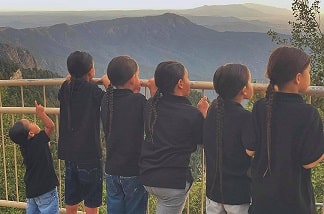According to the Pell Institute, only 11% of first-generation students earn a degree within six years. There are many reasons for this. First-generation students are less prepared than their counterparts, they did not get help choosing a college that is a good fit for them, their families often discourage them from getting a higher education, and being unfamiliar with college culture, rather than immersing themselves in it, they withdraw.
For American Indian college students, many of whom are first-generation students, this problem is compounded when they attend college off the reservation or outside of their culture. Not only are they unfamiliar with the academic demands of college, but they are also unfamiliar with their culture. This is why so many American Indian students drop out of mainstream colleges if they have not been prepared to succeed at a tribal college.
The 33 tribal colleges and universities across the country are uniquely positioned to help American Indian students succeed academically. They provide small classroom environments, ensuring students get the attention and counseling they need. Students are schooled in their culture and are given the confidence and study and learning skills to accompany that confidence to enable them to finish their education, whether at a tribal college or mainstream institution. While mainstream institutions are developing student housing for first-generation students and other programs to enable them to succeed, tribal colleges have been providing the support and special coursework for at-risk students ahead of the curve.
By supporting tribal colleges, you help ensure that first-generation American Indian students are part of the 11% that graduates, and helping to improve those statistics.








